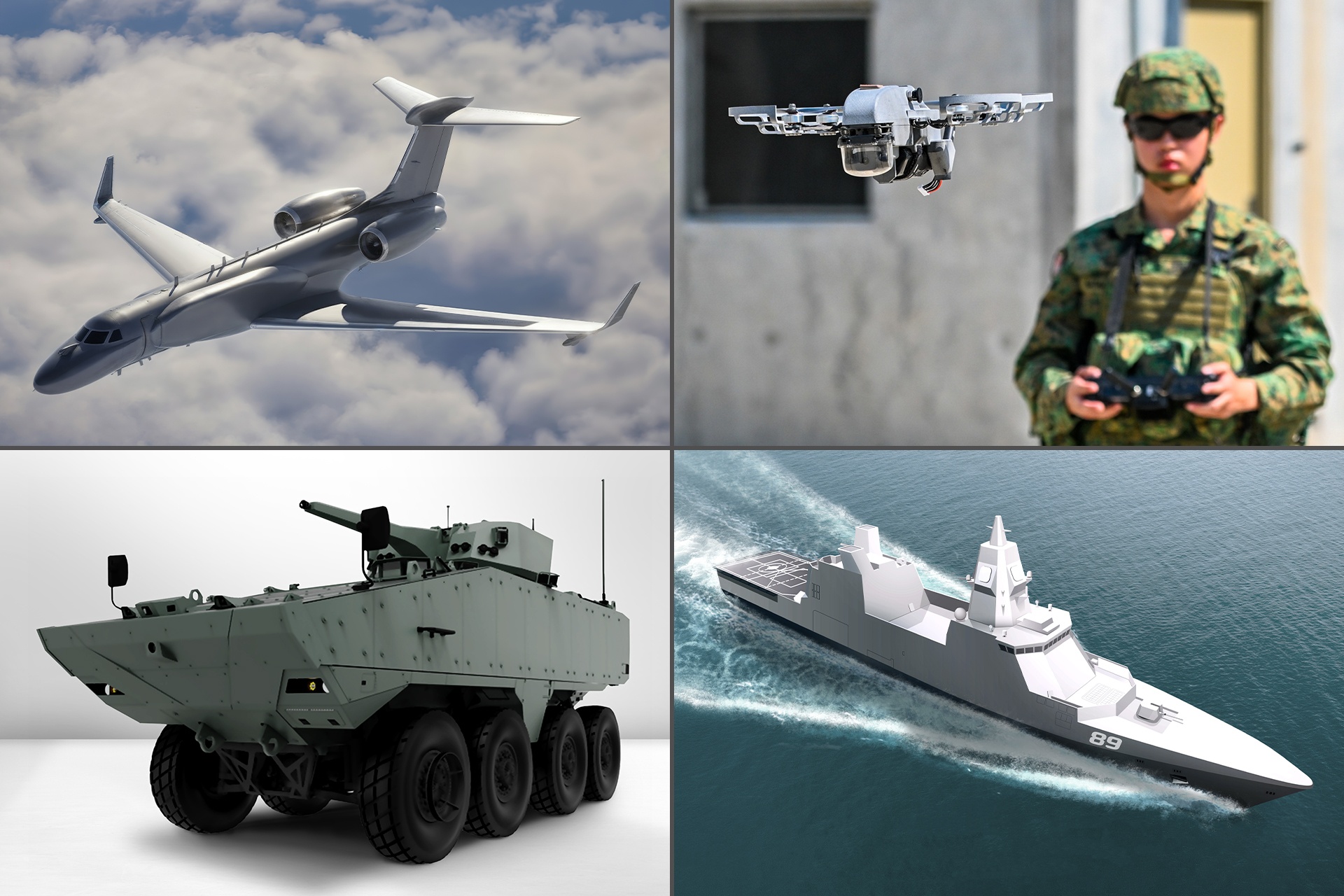OPS & TRAINING
DOING MORE FOR OUR NATIONAL SERVICEMEN
03 Mar 2022
Various new initiatives will be put in place to enhance the NS experience and training safety of servicemen.
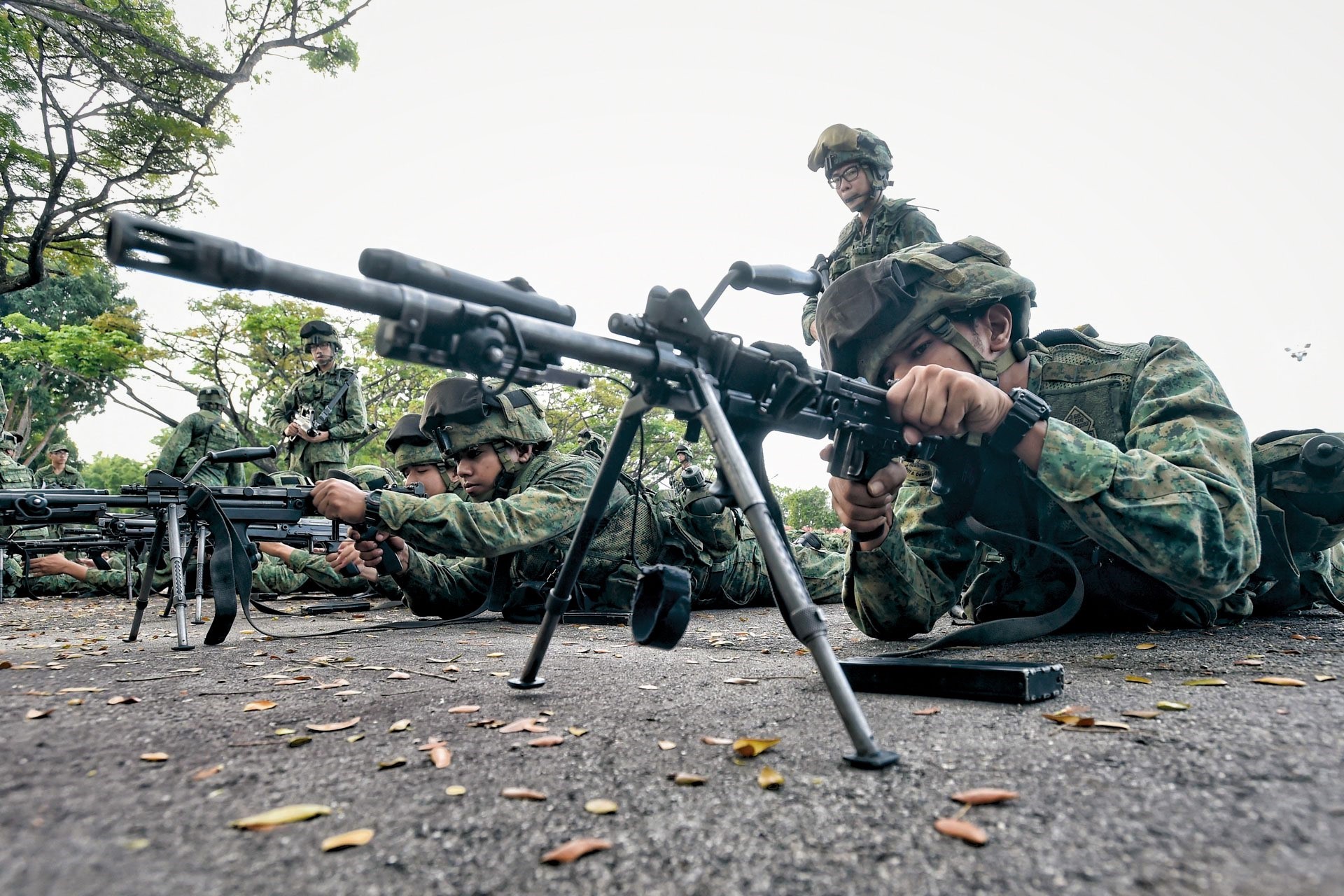
The National Service Review Committee (NSRC) – which was established in 2020 to look into measures to strengthen the NS system – has concluded its review.
Speaking at the Committee of Supply debate on the defence budget on 3 Mar, Senior Minister of State for Defence Heng Chee How noted that, as 2022 marks 55 years of NS, "it is timely for us to reaffirm our commitment towards ensuring that the NS system remains relevant to the needs of the SAF (Singapore Armed Forces) in protecting our country (and) national servicemen".
He elaborated on three broad thrusts in the efforts to
strengthen the NS system. They are: maximising the contributions of
servicemen, improving the NS experience, and enhancing support and
recognition for our soldiers.
Maximising servicemen's contributions
Functional assessments will now be implemented at pre-enlistment medical screenings.
Pre-enlistees with selected orthopaedic conditions and sports injuries will undergo tests to assess their functional capacity related to range of motion, stability and strength to determine whether they are suitable to undertake the physical demands of the job-specific training.
Developed in consultation with external physiotherapy specialists, alongside SAF physiotherapists from the Centre of Excellence for Soldier Performance, the tests will enable a more holistic assessment of servicemen's abilities. This is so that the SAF can better assess if they can be deployed to a wider range of operational roles.
Trials began in 2021 for the selection of Transport Operators and the improved deployment process has enabled more NSFs to be safely deployed in this role.
To further expand deployment opportunities, the SAF plans to redesign another 800 jobs by 2023. It had redesigned 1,000 jobs last year, including the medic role which can now be filled by servicemen of varying physical capabilities as the SAF leverages medical technology advances.
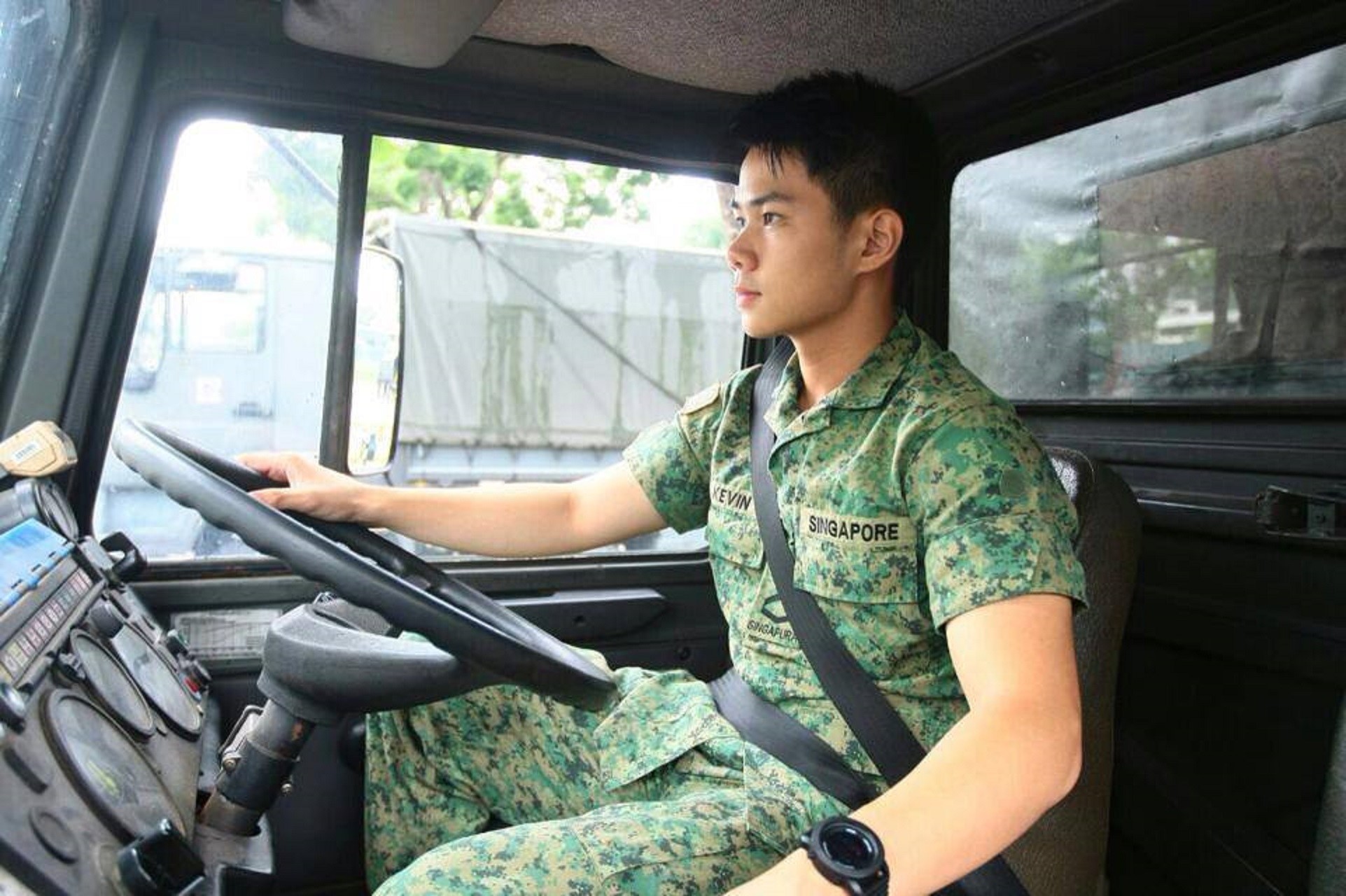
To give national servicemen more opportunities to upskill and maximise their contributions, a fifth Work-Learn Scheme (WLS) – the Digital Work-Learn Scheme – will be launched in 2022.
The WLS allows eligible Full-time National Servicemen (NSFs) to undergo training and attain MINDEF-sponsored diplomas or partial university credits during NS. The Digital WLS will allow the SAF to tap on their expertise and meet operational needs in software development, cloud development and Artificial Intelligence.
NSFs who enlist from April 2023, and are interested to pursue undergraduate studies in Computer Science, Computer Engineering, or Data Science and Artificial Intelligence, can apply for this scheme.
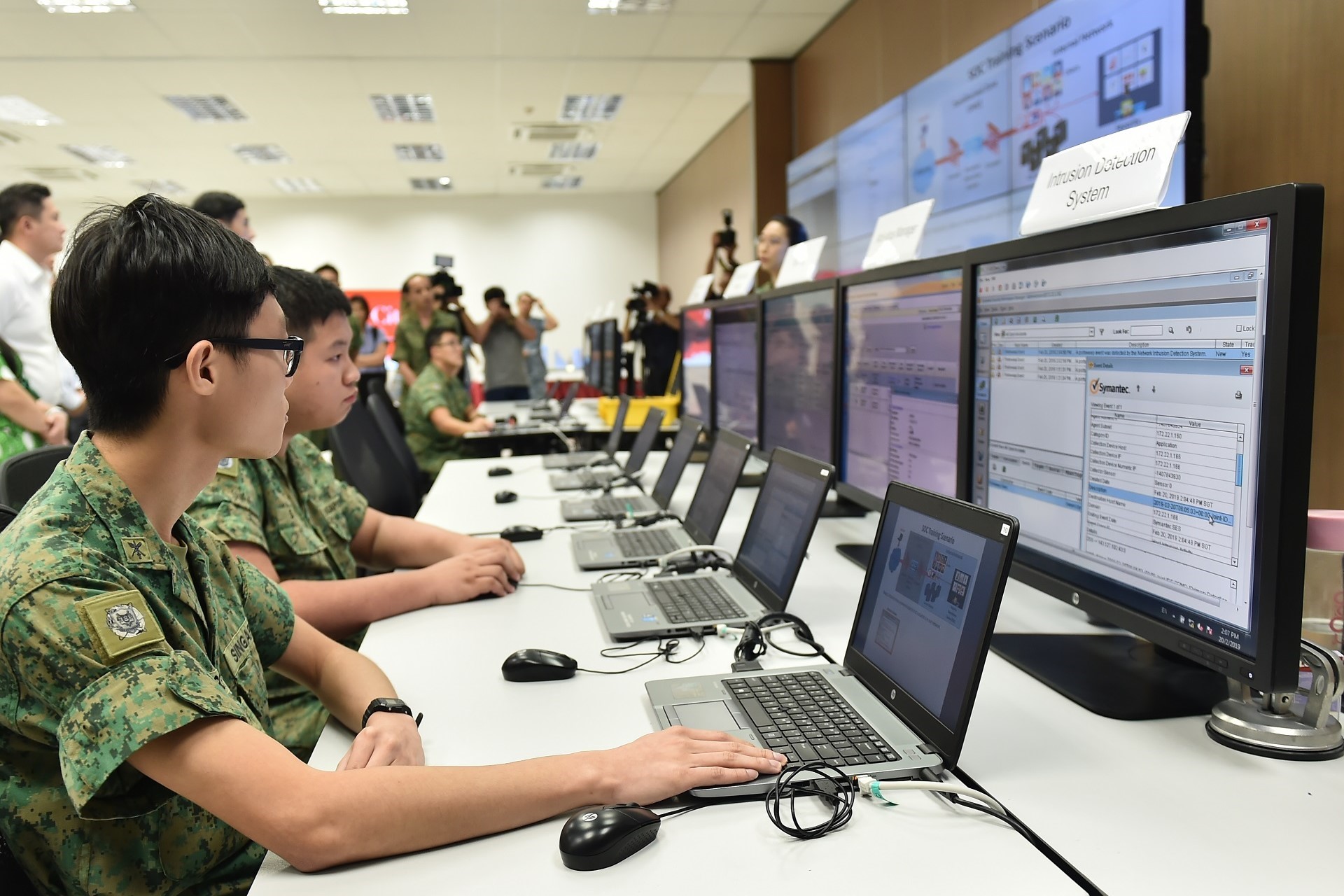
Improving NS experience & recognising our soldiers
The NS HOME (Housing, Medical and Education) awards, which recognise NSmen for their sustained commitment to national defence, have been enhanced.
From 1 Apr this year, NSmen will receive an additional $2,000 in cash credits cumulatively across the three ORNS (Operationally Ready National Service) milestones – $1,000 after completing full-time NS, and $500 each, at the mid-point and completion of the ORNS cycle.
They will now receive at least $6,000 in total at the end of their full-time NS, and at least $5,500 in total at the mid-point milestone and at the completion of their ORNS milestones.
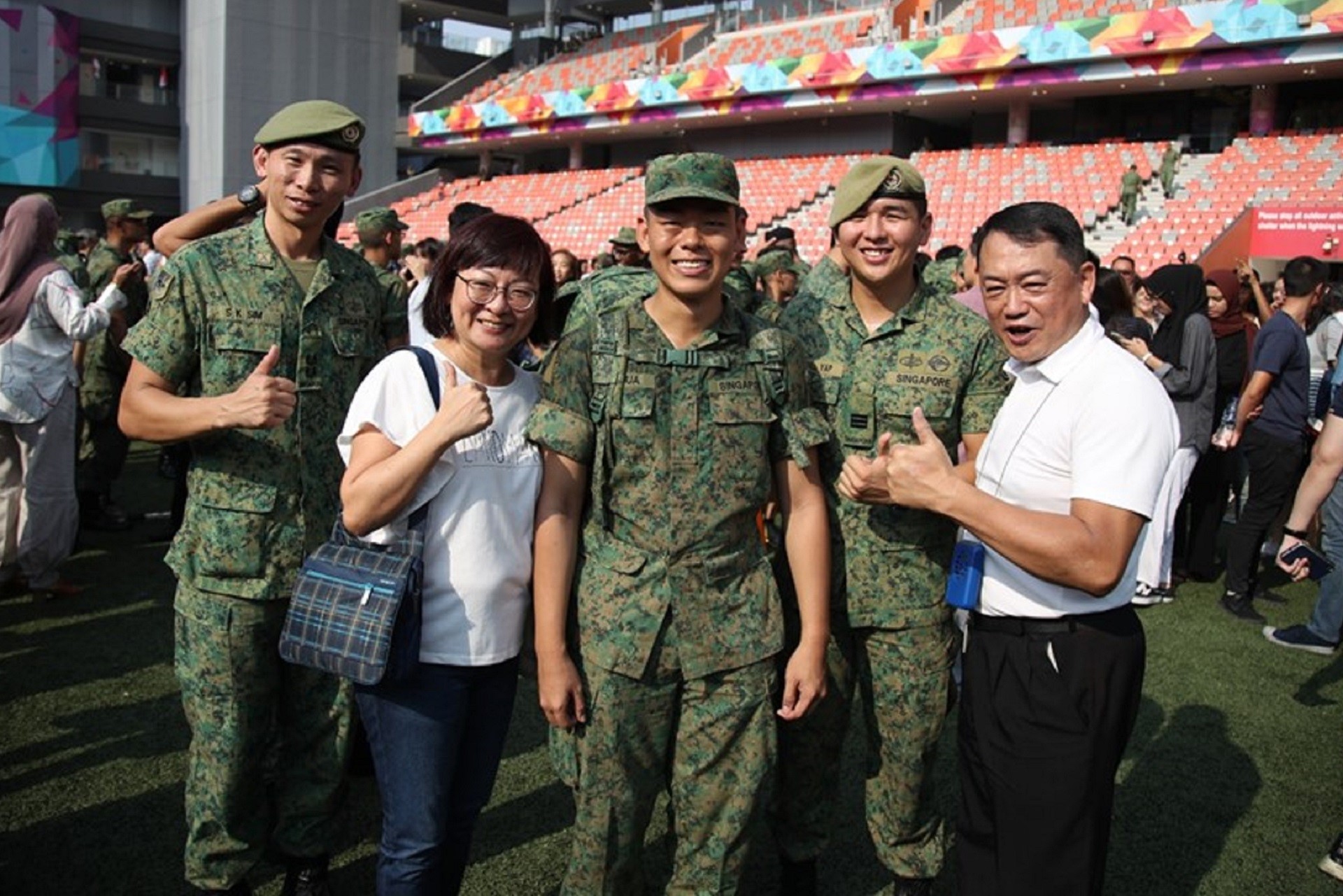
NSmen will receive their NS HOME awards cash credits via the LifeSG mobile app from May this year.
As part of measures to use digital technologies to cater to today's tech-savvy generation, MINDEF will progressively shift more NS recognition benefits to digital disbursement over time. Benefits like the NS Excellence Award and Celebratory Gifts have already been disbursed in cash credits via the app since November 2021.
To increase convenience for NSmen and their employers, Make-up Pay claims for In-Camp Training (ICT) will be automated from the second half of 2022. The amount will be automatically calculated via data drawn from IRAS and CPF Board.
MINDEF/SAF and the Ministry of Home Affairs/Home Team will also implement a base NS pay, to compensate NSmen whose income from informal employment and foregone training allowances may not be fully reflected in IRAS and CPF Board data. All NSmen will receive at least $1,600 for every month of ICT they attend. Shorter ICT durations will be pro-rated.
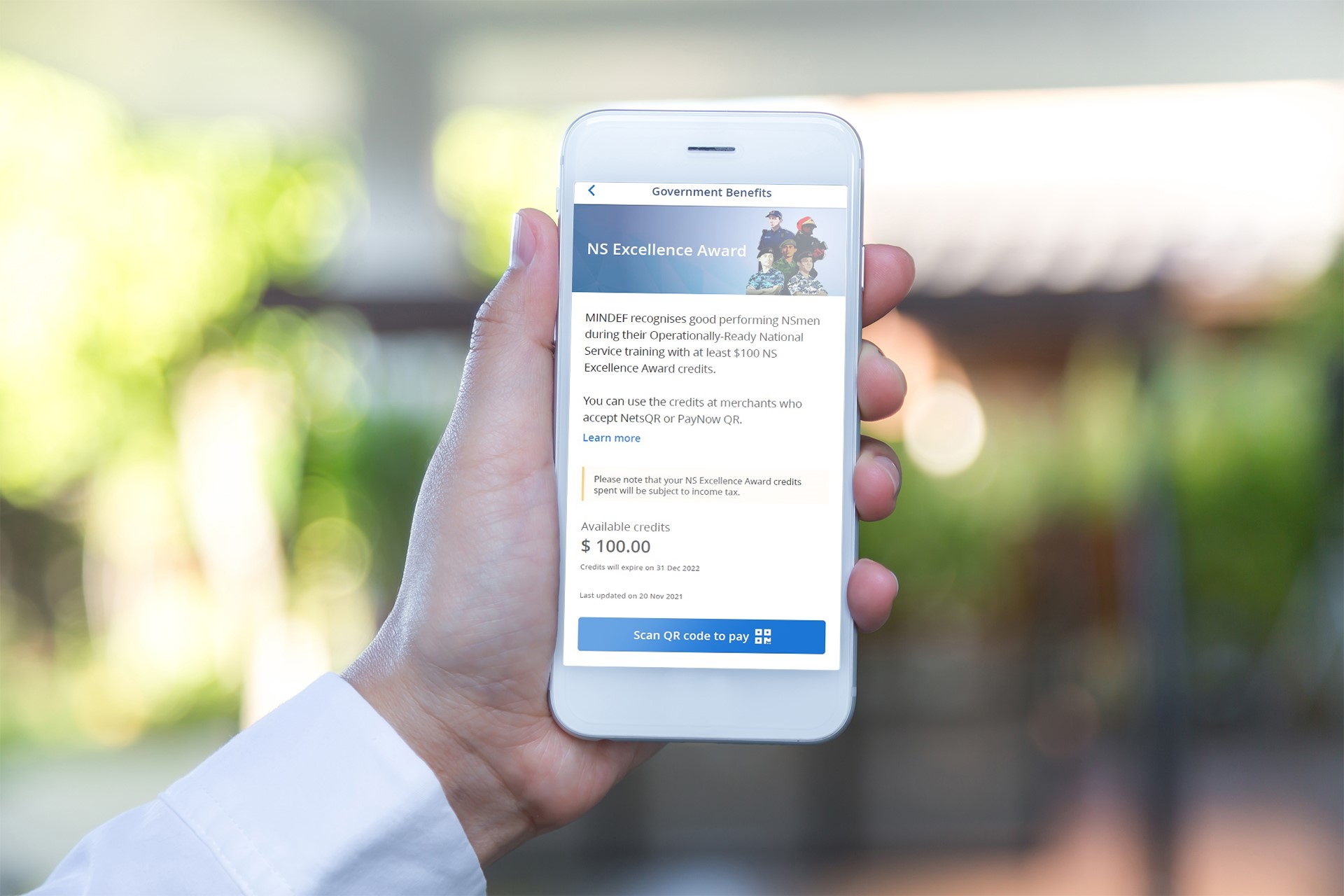
OneNS platform, a one-stop platform which consolidates all NS-related digital services and transactions throughout an individual's NS journey, will be launched in the second half of 2022.
NSmen will have access to enhanced call-up and deferment
eServices which will be integrated with Smart ICT features through the
OneNS platform. More eServices and products will be progressively
enhanced and rolled out.
Smarter safety reporting
To enhance training safety, the SAF will be establishing the Heat Resilience and Performance Centre (HRPC) to address rising ambient heat, and rolling out an SAF-level digital safety information system.
The first-of-its-kind centre, situated at the National University of Singapore (NUS), will work with NUS and DSO National Laboratories to enhance heat-resilient and heat-proofing solutions.
The HRPC will work on four key thrusts: active surveillance to find new factors causing heat injuries; real-time prediction and detection of at-risk soldiers to prevent heat injuries; strengthening the heat resilience of soldiers; and enhancing infrastructure to reduce heat stress among soldiers during training.
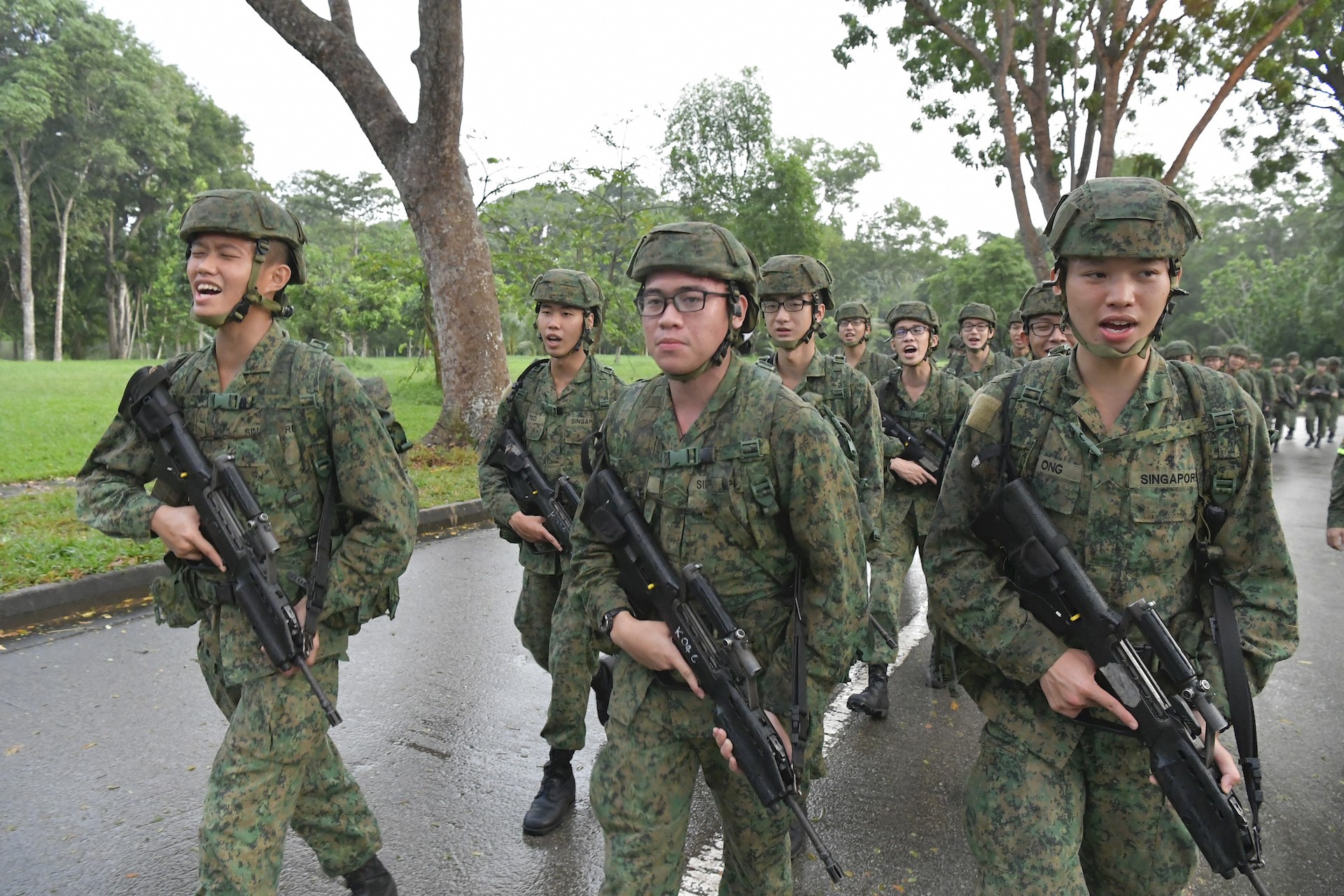
A Next Gen safety information system – the Enterprise Safety Information System (ESIS) – is currently undergoing development. It leverages safety information across the SAF and, using data analytics, flags out areas of safety concerns in a timely manner to predict and prevent potential accidents.
The system will be integrated with the SafeGuardian mobile app, an SAF-wide safety app launched in June 2021. This allows safety reports filed by commanders and servicemen to be quickly disseminated across the SAF and analysed by the ESIS. This will help Commanders monitor safety information, trends and alerts to direct their safety efforts.
With better awareness of troops' safety status, accident prevention can be more effective and timely.
The system will also incorporate data science and AI technologies to help discover potential risks in operations and training, help predict probable future occurrences, and recommend pre-emptive actions to prevent potential accidents.
More new features for ESIS will be progressively built and rolled out every six months towards full operational capability by 2023.
ALSO READ IN OPS & TRAINING
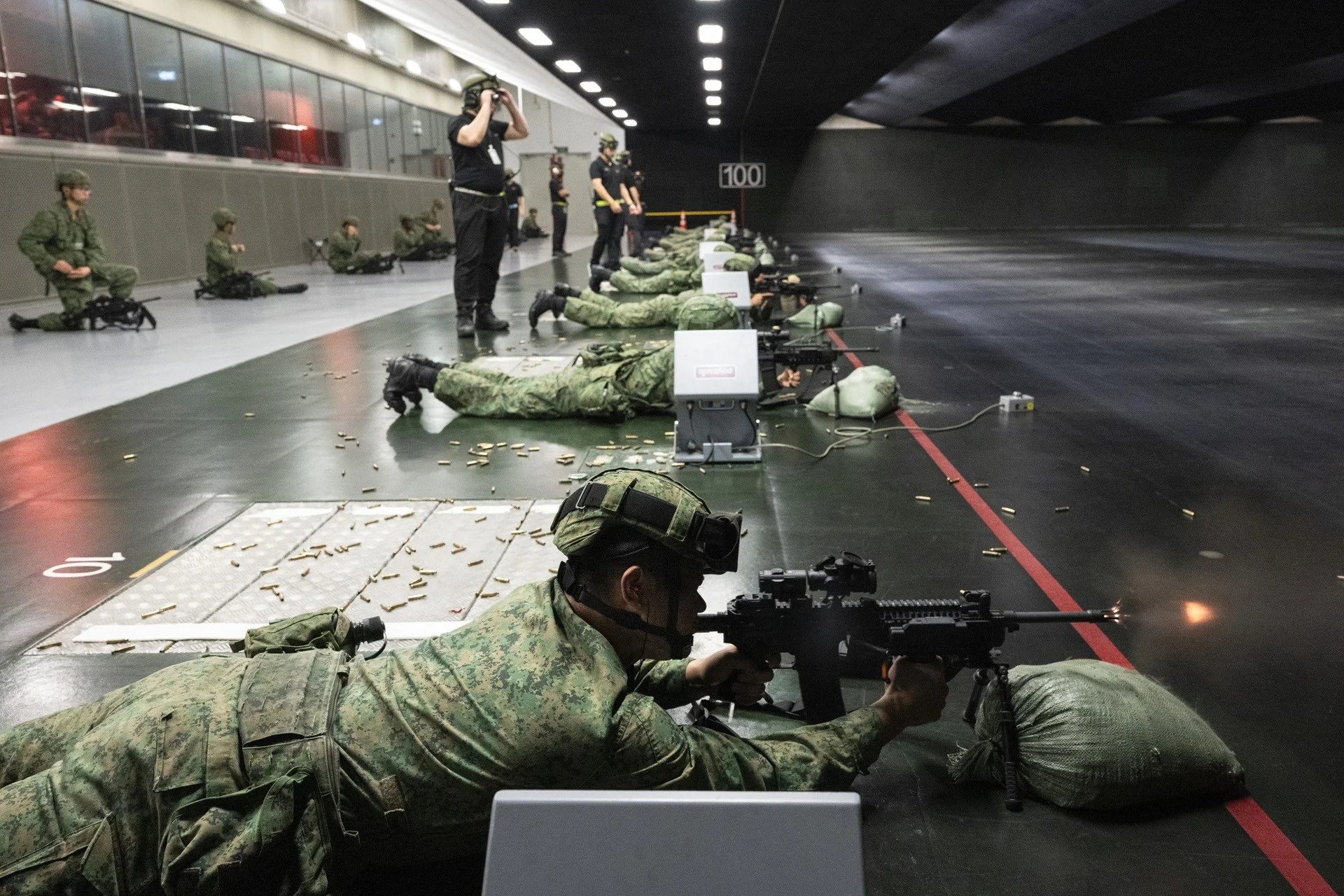
New firing range complex at Bedok Camp; Medical Classification System to be redesigned
27 Feb 2026
To train soldiers for a more complex environment, the SAF will build a new Multi-Mission Range Complex, as well as introduce opportunities for national servicemen to take on new roles, and more ways to volunteer.
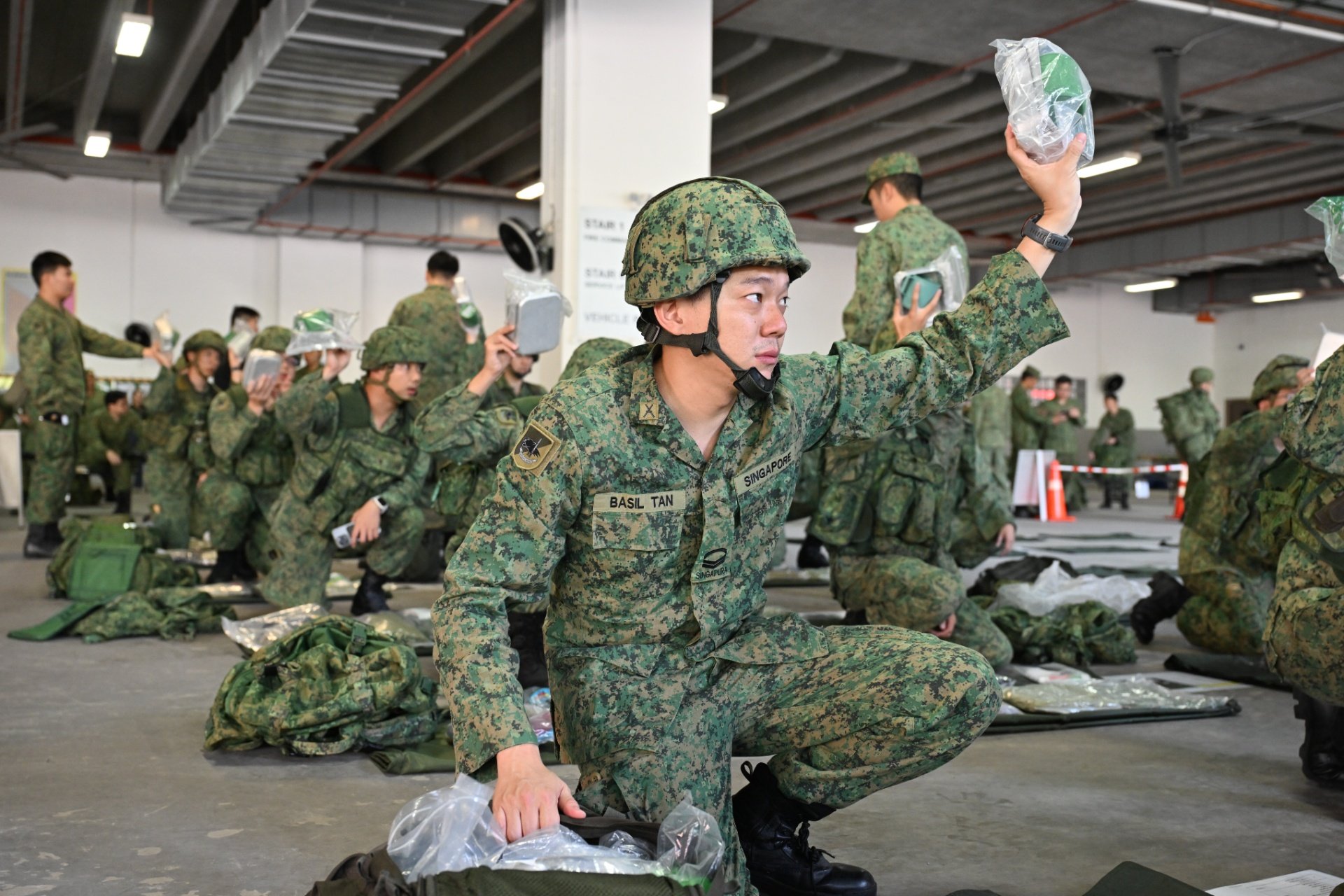
Reaffirming their commitment to defence
07 Feb 2026
Over 3,000 NSmen displayed their commitment to Singapore’s defence at a MOBEX in Selarang Camp.
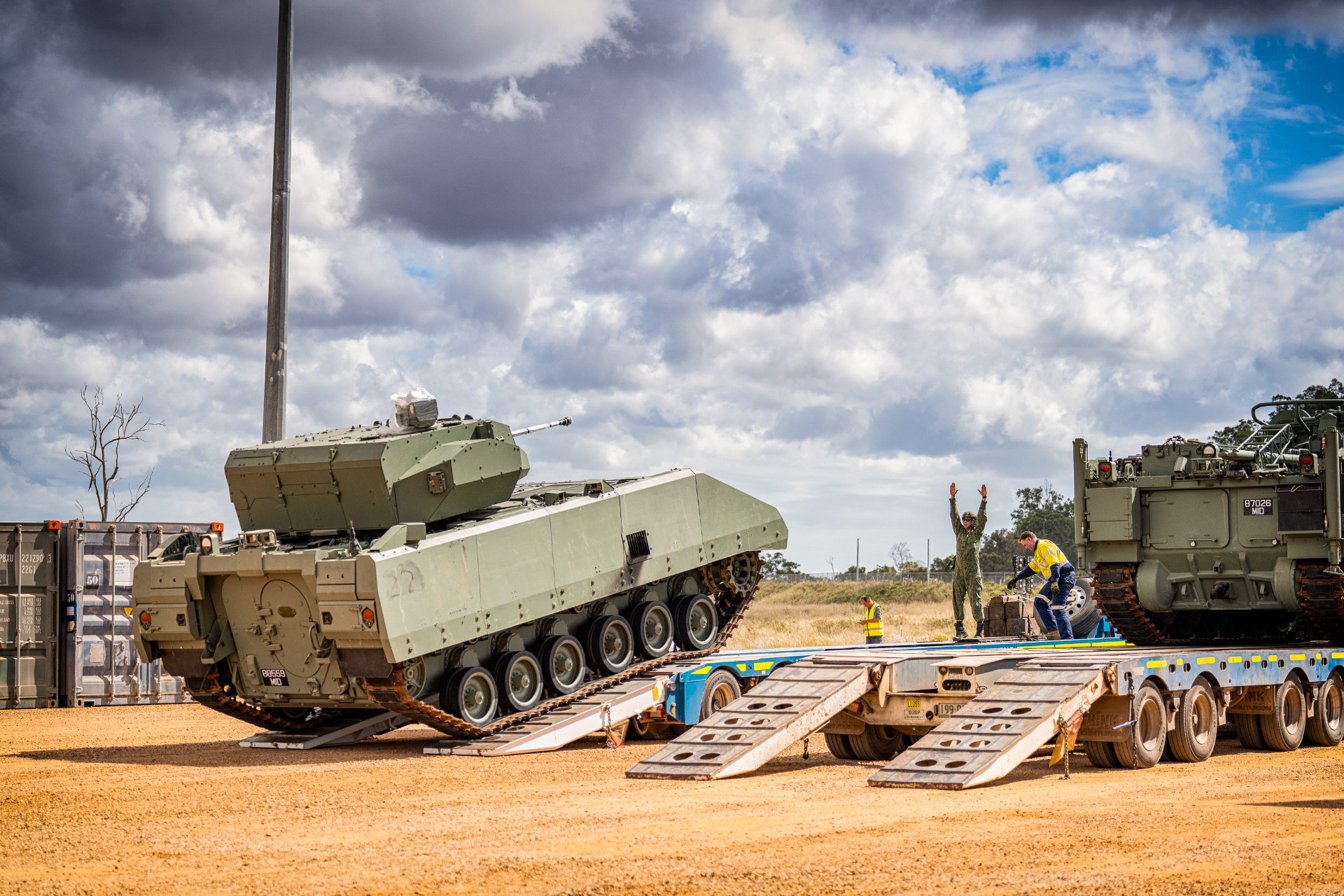
First in, last out at Ex Wallaby 2025
06 Nov 2025
Meet the teams who toil behind the scenes to enable the smooth conduct of the SAF’s biggest unilateral overseas exercise.


